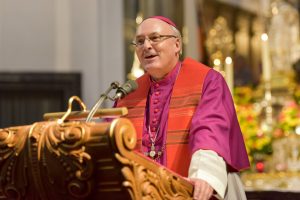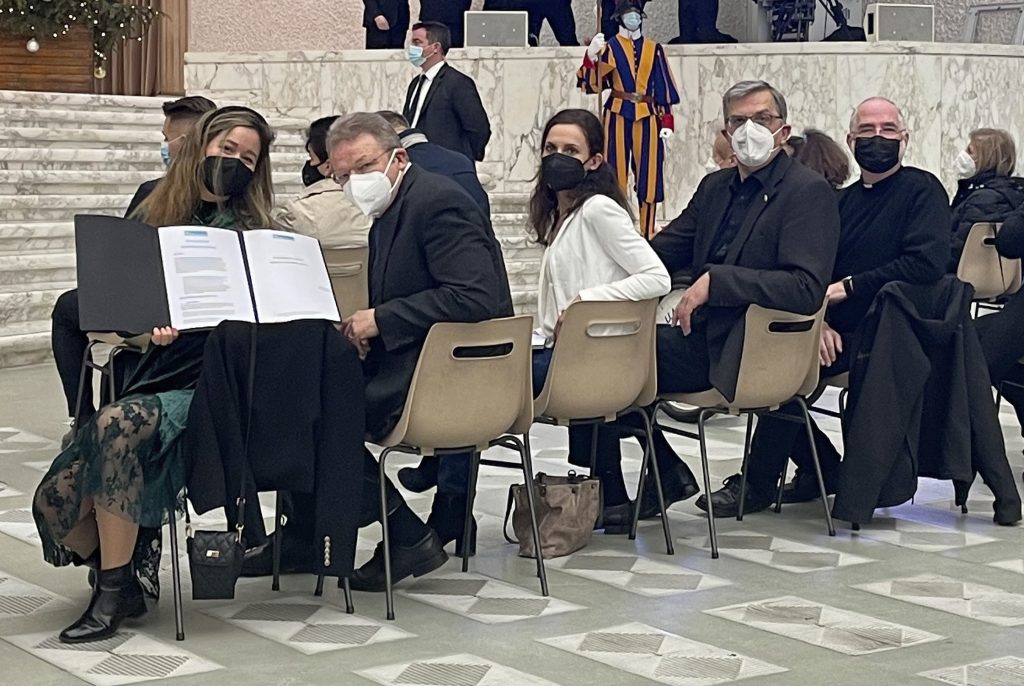ROME — Back during the Second Vatican Council, German-language theologians and prelates were so influential that one history of the council was titled “The Rhine Flows into the Tiber.” Now that Germany’s controversial “Synodal Way” is gathering steam, it almost seems the Tiber may be trying to divert the Rhine.
The Synodal Way began as a response to the clerical sexual abuse scandals that have rocked Germany over the past decades. Billed as a multiyear process of discussion and debate in which nothing is taboo and nothing is off the table, and which would end with a series of “binding” votes among participants, the German process has raised fears that it could trigger a crisis in Catholicism by producing results at odds with official teaching on issues ranging from women’s ordination to same-sex marriage.
Pope Francis and his Vatican team have tried to warn the Germans not to go too far, including in June 2019, when the pontiff sent a detailed 19-page letter urging participants in the Synodal Way to focus on evangelization in the teeth of sharp declines in the practice of the Faith — and not, by way of implication, to become sidetracked by matters that could disrupt Church unity and pit Germany against other parts of the Catholic world.
Those imprecations haven’t seemed to have had any discernible effect on the deliberations so far, but that hasn’t stopped them from continuing to come.
Last September, Bishop Rudolf Voderholzer of Regensburg — coincidentally, the hometown of Pope Emeritus Benedict XVI — presented an alternative text to the official manifesto for the Synodal Way, titled “Authority and Responsibility.” It voiced deep concern about the direction of the process.
“In the current debate on Church renewal, the necessity of which has become obvious through the abuse crisis, positions are often put forward whose contents have no secure connection with the reappraisal or prevention of abuse of power within the Church,” the alternative text says.
“Calls for the introduction of women’s ordination or the desire for a comprehensive adaptation of Church structures to the standards of modern democracies, as well as doubts about the spiritual authority of the ordained ministry, the plea for its consistent desacralization or a far-reaching reorganization of the Church’s sexual morality are components of a reform agenda whose origins lie far before the abuse crisis and have only been secondarily associated with it,” it said.

Just a few days ago, another “protest of the protest” text was released, including a personal presentation to Pope Francis.
Published online and titled “New Beginning: A Manifesto for Reform,” the nine-point document charges that the Synodal Way “abandons the path of unity with the universal Church, damages the church in the substance of its faith, and paves the way towards schism.”
So far, the document has attracted a few thousand virtual signatures of support.
What’s notable about all this isn’t that the German initiative has attracted criticism, because anytime some semi-official body of Catholics takes up hot-button issues such as women and homosexuality, there’s bound to be at least as much heat as light.
What’s interesting instead is who the blues in this fight are, and who are the grays.
In the abstract, you might suppose that a progressive-minded reform effort would have the support of the Church’s liberal wing, beginning with Pope Francis himself, and radiating down among the perceived Pope Francis allies in the hierarchy. Instead, two leading German-language prelates, both known to be center-left and both seen as key Pope Francis counselors and aides, have both come out publicly in support of the critical alternatives to the Synodal Way.
Back in September, Cardinal Walter Kasper, the protagonist par excellence of the Synod on the Family and the opening to Communion for the divorced and civilly remarried in “Amoris Laetitia” (”The Joy of Love”), endorsed the alternative text produced by Bishop Voderholzer.
At the time, Kasper, somewhat caustically, said it’s legitimate to wonder whether everything in the early results of the Synodal Way are “still entirely Catholic.”
This month, the German “New Beginning” group that took a pilgrimage to Rome to present their document to the pope had Swiss Cardinal Kurt Koch on their program. Cardinal Koch is the president of the Pontifical Council for Christian Unity and an important Pope Francis aide on both ecumenical matters and also relations with Judaism.
In truth, the German Synodal Way has been a bit of a smoke-and-mirrors exercise from the beginning, in that it was never going to produce the sweeping changes some of its protagonists would like to see. At most, it can register the desire of some German Catholics for those changes through the final votes, but that in itself does not amend dogma or the Code of Canon Law.
However, such votes arguably become even more of a Pyrrhic victory when they’re likely to be immediately disowned not merely by conservative sticks-in-the-mud, but the very liberal lions who’ve helped create the conditions in the Church in which something like the Synodal Way is conceivable in the first place.
To put the point differently: “Right vs. Left” is not the only fault line that matters in the Catholic Church. There’s also “Recognizably Catholic vs. Something Else Entirely” … and if you’re curious as to where exactly the boundary lies, you may soon have Germany to thank for an answer.

